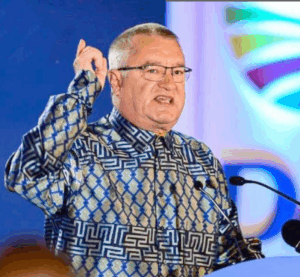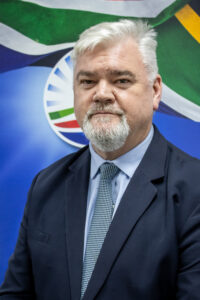KwaZulu-Natal’s (KZN) Legislature has three core functions: To make laws, perform oversight as authorised through the constitution and rules of this house and, public participation.
Just as a safer province needs a whole-of-society approach, the same approach, using the Legislature’s core mandate is required to create conditions for sustained progress towards prosperity for all. This requires three pre-conditions:
• The Rule of Law;
• A culture of accountability – in which all members of society take their responsibilities seriously and;
• And a capable, caring and ethical state that undertakes its duties efficiently, honestly, and cost-effectively.
In her 2010 State of the Province Address (SOPA), former Western Cape Premier Helen Zille stated the following; “The open society is one based on constitutionalism and the rule of law, where individuals are guaranteed rights and where independent institutions protect these rights, and limit and disperse political power.
In the open society, there is transparency and accountability, assisted by a free press and a robust civil society. The opportunity society is one where every person is given the chance and the wherewithal to improve their own circumstances, whatever their circumstances may be.
In the opportunity society, the state has a duty to do for people what they cannot be expected to do for themselves. In the opportunity society, those who take responsibility for their lives and use their chances flourish. They understand that taking control of their own lives is infinitely preferable to a lifetime of dependency on the state.
South Africa, and indeed KZN, is not yet an open opportunity society. It is not yet an open society because power abuse still goes unchecked and unpunished. And, some people still think they are above the law. It is not yet an opportunity society because too many people remain trapped in a cycle of poverty and unemployment, with few realistic prospects, relying on state grants to survive.”
KZN’s Government of Provincial Unity (GPU) has a responsibility, through the core mandate of the legislature to charge towards this ideal and, at the very least, reach its closest resemblance during the 7th term.
To enhance the delivery of services, provincial government must be more nimble, agile and accessible. It has to factor in more law making by encouraging private Member bills, committee bills and cabinet bills. Provisions in the rules will need to be made to allow for the same spirit of speed and resilience and budgetary cycles will need to provide for this in a planned manner.
The DA welcomes the commitments made by Legislature Speaker, Nontembeko Boyce and the feedback on achievements, all of which will enhance the institution.
In order to achieve more, capacity building must be central to the development of Legislature Members – to effectively make laws that will allow them to reach the earlier stated ideal – and perform outcomes-based oversight. It is also important that there is a commitment not to turn any envisaged training into chamber debate, as we have recently seen. This is counter-productive in terms of cost, time and human resources.
KZN Deputy Speaker, Mmabatho Tembe is charged with the duty, as she is within the DA, of ensuring that capacity building is outcomes based. It cannot simply be about attendance. The DA therefore advises performance measures to ensure that by the end of each programme, Members know what they are doing. Without measures and the provision of Member support to enable continuous improvement, KZN’s Legislature will have an entire term of the nature of a dog and pony show that will defer from the ideal mentioned earlier. The needle, in the lives of our citizens will barely move.
While Legislature rules have been recently amended to facilitate the functioning of the institution, they require a little more tightening-up to ensure that they are more explicit and, in some instances, broader to allow for greater accountability.
The DA does not see why questions to KZN’s Executive cannot be more frequent. We also cannot see why several of these more frequent sessions should be without notice. This is commonplace almost every week in the Western Cape Provincial Parliament. The bottom line is that more sessions of accountability intrinsically foster greater accountability from the top down.
These sessions, along with more frequent portfolio committee slots – where attendance-related costs are the biggest concern – can be conducted virtually. The increased frequency of virtual proceedings will also allow committees to be compliant with audit requirements and ensure that stringent resolution tracking and follow-through becomes tighter.
These suggestions tie in with the Speaker’s direction of digitisation through the various portals which will assist to ameliorate budgetary constraints to a significant degree. It is for this reason alone, that the DA backs the move inasmuch as it may not be as ideal as envisaged.
Declining budgetary allocations are a reality that must engender ingenuity. This will continue to put KZN’s citizens first and will thrust MPLs closer to the ideal needed before the end of this term.
The DA will support the executive authorities moves to reduce major Member-driven cost drivers. It is for this reason that during Monday’s STACOV debate I again touched on the need for a new parliamentary precinct. It is hoped that this discussion can be re-kindled with National Treasury, Provincial Treasury and KZN’s MEC for Public Works and Infrastructure. The visit to Scottish Parliament should have crushed any resistance to making this happen sooner rather than later.
KZN’s Legislature cannot be successful as a legislative institution without the cooperation of all Members across the political divide. Despite political differences – which often result in robust debates in the House and in committees – the Legislature must always conduct its business on all matters of provincial interest with the utmost dignity and decorum as our uppermost guiding principle.







